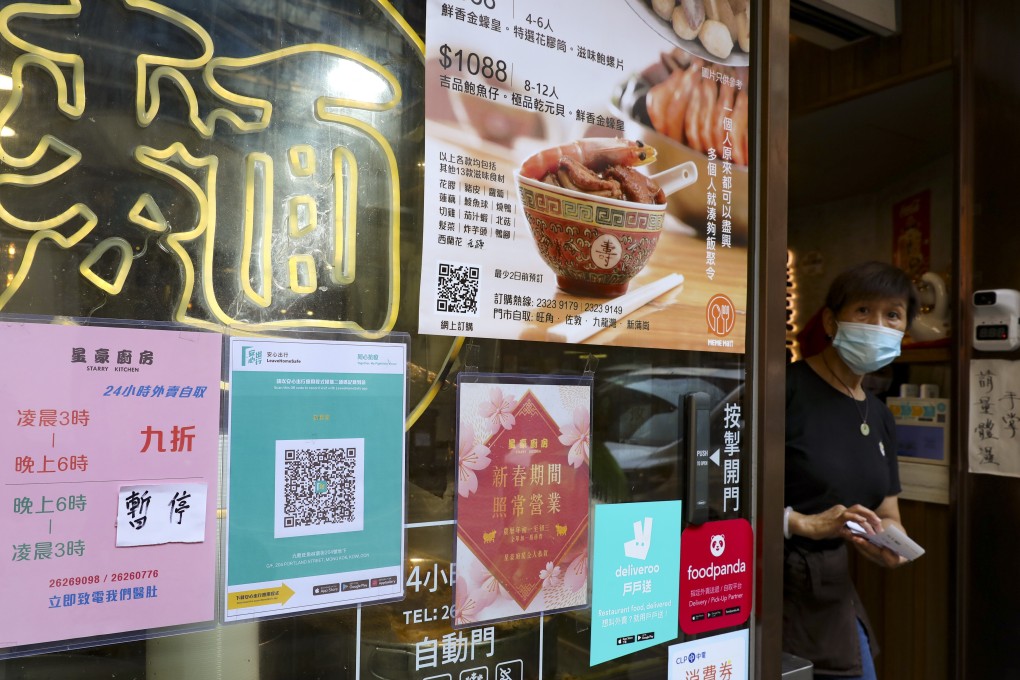Are Hong Kong’s restaurants ready for eased Covid-19 curbs? 100,000 staff to be tested, operators see app rule as recipe for conflict
- Cap on customers per table to be relaxed from two to four, with dine-in services allowed until 10pm from Thursday
- But workers will have to get tested for Covid-19 every 14 days and patrons will either have to scan ‘Leave Home Safe’ app or register contact details at venue

Hong Kong’s beleaguered catering sector is gearing up for the resumption of evening dine-in services on Thursday with more than 100,000 workers lining up for mandatory Covid-19 tests.
Some business owners are grappling with how they can record details of diners who refuse to use the government’s contact-tracing app.
More than 16,000 restaurants in the city are busy preparing for the long-awaited relaxation of tough social-distancing rules as authorities on Tuesday announced the easing of the cap on customers per table from two to four, with dine-in services to be allowed until 10pm. The changes will kick in on Thursday.
Strict measures in place since last December have limited the number of patrons per table and banned dine-in services after 6pm.
But the relaxations come with two conditions for venue operators – employees will need to be tested for the coronavirus every 14 days, and customers either have to scan the government’s “Leave Home Safe” Covid-19 exposure app or register their contact details.
Secretary for Food and Health Sophia Chan Siu-chee said on Tuesday that there would be no compromise on the conditions, which were part of public health measures.